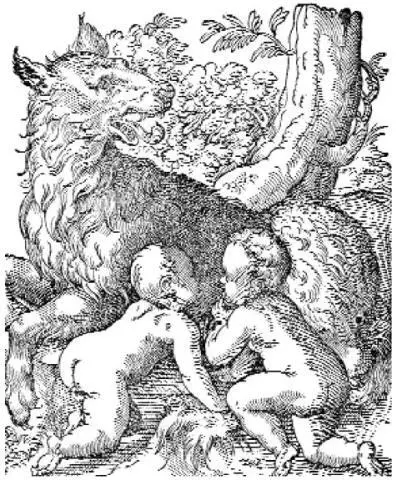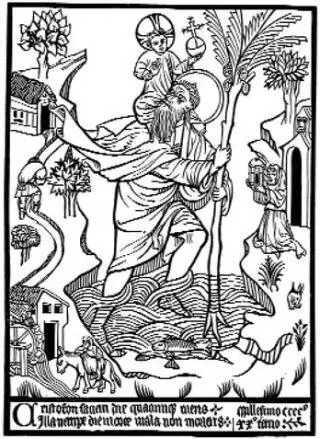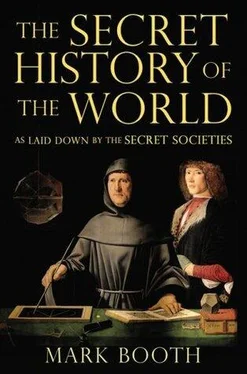
Romulus and Remus. The story of the two Jesus boys is, in effect, a sanctified version of the story of Romulus and Remus, in which one brother murders the other in order for him to serve as the foundation sacrifice of the Eternal City. Great buildings and cities were founded on sacrifices in ancient times, and this is undoubtedly what the myth of Remus killed and buried in a ditch refers to. In the case of the two Jesus boys, one could be said to sacrifice himself for the sake of the New Jerusalem.
We also have a sense that others have infinity inside them. Over many hundreds of years, the conditions had been coming together which would make possible a sense of individual identity, what we today sometimes call the Ego. But without the intervention of the Sun god, the Ego would have been a small, hard, self-centred point, operating in isolation, intent only on its own immediate gratification, open to no outside interests other than the very lowest. Every human being would have been at war with every other human being. No individual would have any sense at all of any other as an independent centre of consciousness.
When his parents took Jesus to the Temple, at the time of the disappearance of his kindred spirit, he showed himself very wise. What passed into him from the other Jesus was the ability to read minds, to see deep into other people’s souls, to see how they related to the spirit worlds and to know what to do or say to make things right for them. He felt other people’s pain as his own. He was experiencing something — the gift of empathy — which no one had ever felt before.
Once an individual or small group develops a new faculty, a new mode of consciousness, it often spreads around the world with remarkable speed. Jesus Christ introduced a new kind of love, a gracious love based on the gift of empathy. An individual would be free to transcend the bonds of his or her isolated existence to share in what was taking place in another person’s innermost nature.
Love BC had been tribal or familial. Now individuals were able to rise above blood ties and to choose freely who to love. It is this that Jesus meant when, in Mark 3:32 he appeared to deny the importance of his own mother to him and when, in Matthew 10:37-8 he said: ‘He that loveth father and mother more than me is not worthy of me.’
Esoteric teaching is above all about loving in the right way. It says that when you cooperate with the gracious forces that form the cosmos, the force flows through you in such a way that you may become conscious of it. This process is called thaumaturgy, or divine magic.
Whether at this level or at the level of ‘little, nameless unremembered acts of kindness and love’ or the ‘little way’ of St Thérèse of Lisieux, the way of self-denial and acts of charity in small things, the new Christian perspective was focused on the inner life. If we compare earlier moral codes, such as the law of Moses or the even older Code of Hammurabi, with the Sermon on the Mount, it is clear that they were only rules to regulate behaviour in the Outworld — do not worship idols, steal, murder, commit adultery etc. The moral teaching in the Gospels, on the other hand, is directed towards inner states. ‘Blessed are the poor in spirit… they that mourn… the meek… the pure in heart…’
When Jesus Christ said, ‘But I say unto you, that whosoever looketh on a woman to lust after her hath committed adultery with her already in his heart’, he was saying something no one had ever said before, that our innermost thoughts are as real as physical objects. What I think ‘privately’ has a direct effect on the history of the cosmos.
In an idealist universe, intention is of course much more important than in a materialist universe. In an idealist universe if two people perform exactly the same action in exactly the same circumstances, but one in a good-hearted way and the other not, the consequences are very different. In some mysterious way the state of our soul informs the results of our deeds, just as the elevated state of the soul of a great painter informs his paintings.
In esoteric interpretation of Greek myths, ambrosia, the food of the gods, is human love. Without it, gods fade away and their power to help us is diminished. In esoteric and mystic Christianity angels are attracted to us if we ask for their help, but if we fail to do so they fall into a twilit, vegetative state, and the phantoms and demons that insinuate themselves around our lower beings work on us instead.
We can of course resist the demons and train our baser animal selves in the same way that we train a dog — by a process of repetition. In esoteric teaching it is said that daily repetition of a meditative exercise for twenty-one days is needed to effect a deep-seated change in our habits.
But there is a yet deeper part of our animal selves which lies completely below the threshold of consciousness and is inaccessible to it. We cannot transform this part by the exercise of free will, no matter how persistent, because the corruption of our animal selves has seeped down into our vegetable and mineral selves.
In order to purify and transform these parts of ourselves we need supernatural help.
The mission of the Sun god, then, was to sink right down into deepest matter, introducing his transforming spiritual influence. The Sun god has the ability to reach right down into the most material part of humanity, which is why it was written ‘None of his bones shall be broken’.
THE TWELVE-PETALLED LOTUS RADIATES outwards from the region of the heart and envelops those we choose to love. It is also an organ of perception. What I truly love will open itself up to me and reveal its secrets.
Enveloping someone in love in this way is an exercise of the imagination. Of course imagination is not to be confused here with fantasy. It is a true perception of a higher reality — and the organ of this in both East and West is the heart chakra. This is what is being referred to on the road to Emmaus, where disciples who have just recognized who it was they have just encountered say to themselves, ‘Did our hearts not burn within us while he talked to us on the road?’
When the heart chakra blossoms and shines, we may perceive the Outworld in a supernatural way. A loving heart can give me conscious experience of the heart of the cosmos, of the loving intelligence that lives beyond the Outworld and controls it. ‘Blessed are the pure in heart, for they shall see God.’
Love works on the will as well as powers of perception. When we really love someone, we are willing to do anything for them.
This is why the heart chakra blossoms when love moves me to act according to my conscience. I am not then acting wearily, like Marcus Aurelius. I am not acting in a cold, unenthusiastic or inauthentic way. I am not doing my duty while part of me resents it. I am acting out of love and devotion.

The phrase ‘Son of Man’ is problematic to exoteric theologians because it seems to refer to both a state of mind and to Jesus Christ himself. In esoteric thought this is resolved because the individual who has evolved to the stage of enlightenment that Jesus Christ made possible, will, as a result, become aware of his or her Higher Self, or divine self. In Christian iconography this evolution is commonly symbolized by a child carried on the shoulder, for example in the story of St Christopher who carried the Christ child on his shoulders. In the Cabala these two same dimensions of meaning are contained in the three-pronged letter shin.
Initiation forges a new form of consciousness. It revives ways of being conscious of the spirit worlds that were common in the earlier stages of human evolution, but now with new elements. The initiations of Pythagoras that set the tone for the ages of the ascendancy of Greece and Rome, for example, had been concerned with achieving an alternative state of consciousness involving free communications with the spirit worlds that had been an everyday occurrence for, say, Gilgamesh or Achilles, but with a crucial difference. Initiates of the school of Pythagoras were able to think about their spiritual experiences in a considered, conceptual way that would have been impossible for Achilles or Gilgamesh.
Читать дальше














